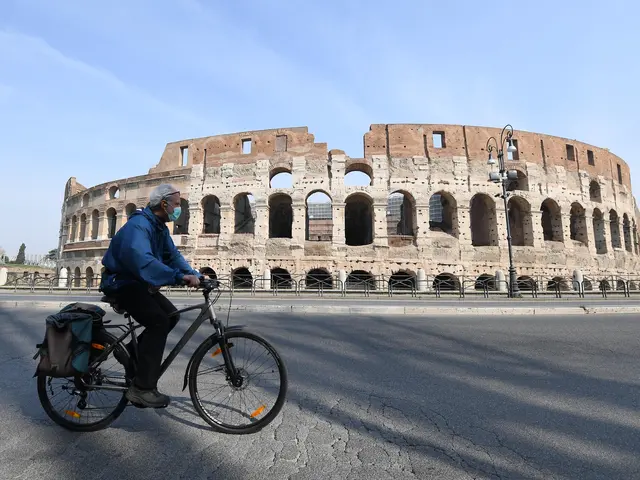National and regional leaders in Italy say they want the country to emerge from the coronavirus crisis less reliant on automobiles and public transportation, although they just haven't agreed yet on how to get to that point.
The benefits more residents using traditional bicycles, electric bikes, stand-up scooters, and other forms of environmentally-friendly forms of autonomous transportation are clear: less pollution and fitness benefits for people who are more active.
Additionally, as the country emerges from the deadly coronavirus outbreak that has so far claimed more than 30,000 lives in Italy, an alternative that results in less crowded public busses and metros will make it easier to maintain proper social distancing on public transportation networks.
"Public transportation is going to be challenging when the national lockdown is lifted since fewer people will be allowed on each bus or metro car," Alessandro Tursi, president of the Italian Federation for the Environment and Bicycles, told Xinhua. "Car sharing won't work for the same reasons, and if that means each person will go to work alone in their own car, it will create a terrible problem with traffic and pollution."
Tursi concluded: "The only solution is for enough people to take bicycles or electric bikes or other forms of autonomous transport."
And yet, there is no consensus on how to make that change happen quickly enough.
A draft for the government's stimulus package originally included a plan to underwrite up to 70 percent of urban resident's spending on bikes, electric bikes, stand-up scooters, or for fees for bike and scooter sharing services, capped at 500 euros (540 U.S. dollars). But that proposal was tabled before the stimulus plan was announced.
The government did give its approval to changes in highway codes that would make it easier for local governments to create special lanes for bikes and scooters.
Bike use was already on the rise in Italy, even before the coronavirus outbreak.
Industry groups said that in 2018, more than 1.7 million bicycles and electric bicycles were sold in Italy, an increase of 7 percent compared to the previous year. There were far fewer stand-up scooters sold last year, but the number is increasing faster: estimates are that 35,000 were sold over the first nine months of 2019 (the latest data available), an increase of 250 percent compared to the same period in 2018.
Several mid-sized cities in northern Italy are already considered particularly bike- and scooter-friendly. But that is not the case in most of the central and southern regions, where some cities are taking major steps to promote greater bicycle use. For example, Rome, Italy's capital and largest city, announced a plan to create 150 kilometers (95 miles) of dedicated bicycle lanes by the end of 2020.
"Rome's plan is the most ambitious," Tursi said. "It will not become a great bike city just by creating 150 kilometers of bike lanes, but it is a big step forward for a city that has done little to promote bike use up until now."
Angela Stefania Bergantino, president of the Italian Society of Transport Economics, said there is an urgency to getting people to buy into autonomous forms of transportation.
"The goal is to change habits," Bergantino said in an interview. "As the lockdown eases, they will become accustomed to relying less on public transportation and if they don't move toward bikes and scooters, they'll just end up sitting in traffic in their cars. The right incentives have to be ready."
She said that did not just mean there should be financial incentives and bike lanes but also greater communication and education so that those still using cars and motorcycles will know to give space for people using the bike lanes.
"If people don't feel safe using bikes or scooters, they will never become popular enough," she said.
 简体中文
简体中文




